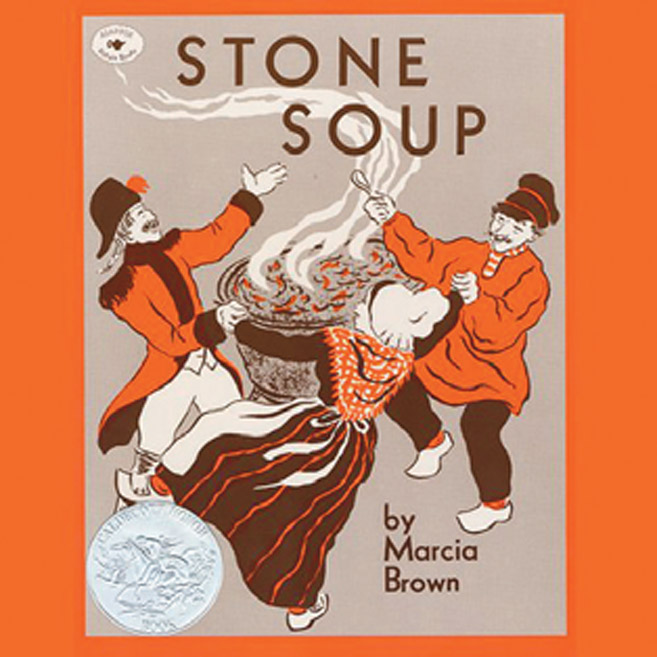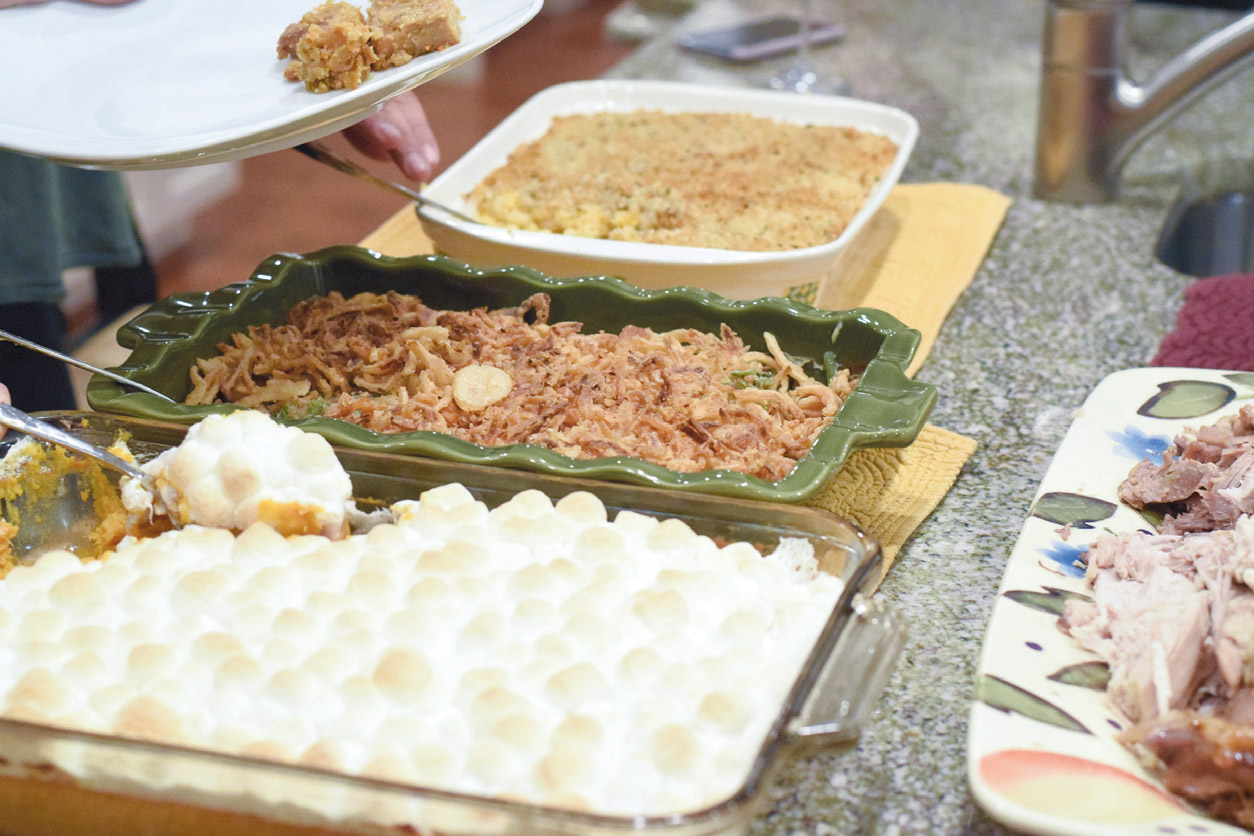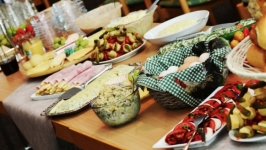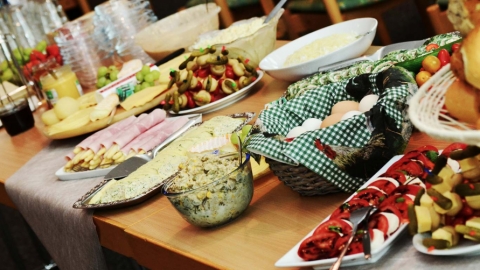Potluck Dinners
Most of us start adulthood with almost nothing, often living in a city far from home. We share apartments with multiple roommates, split bills and scrounge around for cheap eats. In my early life as a performer and writer in New York City, I remember ordering seltzer at a bar so I could indulge in hearty happy-hour snacks, and a long gone East Village Indian restaurant where a three-course dinner came in under $10.
In those early days, my husband and I (Were we even married yet?) started hosting “Actors’ Thanksgivings.” The idea began when one friend won a turkey. I don’t remember how, but I recall the late Wednesday night when he and my husband went to pick it up. They must’ve looked suspicious, dressed in long, dark coats and shadowy hats, striding in just before the market closed. The butcher greeted them warily until they presented their receipt. He claimed mistaking them for undercover cops, though that may’ve been a polite excuse to ease the tension.
Back at our apartment with turkey in hand, we began preparations. By midday Thursday, more friends showed up with all the other fixings: stuffing made from a package, someone’s mom’s classic green-beans-with-almonds casserole. I made my own mom’s homemade cranberry sauce. Like us, most of our friends came from all over the country and had no family nearby. Our apartment-floor gathering laid out on a picnic blanket was our attempt to recreate that feeling of home.
Potluck followed me next to my beloved writing teacher Madeleine L’Engle’s apartment, where every year she hosted a reunion. Her students would appear one-by- one at her door with dishes ready to reheat or grocery bags full of ingredients to prepare. We’d take over Madeleine’s kitchen, which was huge for New York City. The prior tenants had kept kosher, so there were numerous counters, cabinets, and even two refrigerators where we’d spread out and get to work. One annual favorite was fresh homemade pierogi by a student proud of her Polish heritage. But we never stayed within one culture or theme. Hummus mingled comfortably next to hot wings, spinach salad, and Chinese takeout. It didn’t matter what anyone brought or whether they’d made it themselves, as long as it was delicious and plentiful.

Modern potluck developed more communal roots: Think church dinners in small-town America during the Depression. Think Stone Soup. People brought whatever ingredients they had on hand and created something more than edible. They created community.
From these large annual gatherings, a smaller group evolved, hosted monthly in a book-lined one-bedroom in Midtown. From her tiny galley kitchen, our host Elsa whipped up delicious stews, sometimes brisket or roast chicken, while the rest of us arrived with our own offerings in hand. There were usually just six around her minuscule table tucked beneath a literal jungle of houseplants. We’d scoop out grainy salads, tear into gorgeous round loaves of unsliced fresh bread. We had cheeses from the gourmet deli down the block and seasonal fruits—cantaloupes or a huge bag of cherries from the corner street vendor in summer— or a pie, cake or brownies for dessert. We never once planned our menu. Everyone just brought what felt right. Yet we never had two starches; we never went without a tasty vegetable side. And there was always enough, which was a good thing, since those afternoons often lasted well into dark.
When I moved to the suburbs, it felt perfectly natural to carry on the potluck tradition with my own writing community, The Writers Circle, where holiday gatherings are served buffet-style with paper plates and cups, and students, instructors, family, and friends bring dishes from home to share.
But life has a tendency to put on weight; traditions once remarkable for their simplicity can become, over time, cumbersome to the point of breaking. As our community grew, so did the number of trays. At our fifth anniversary celebration, we were too many to fit in our usual meeting space, so we rented a hall and set tables around the edges. Soon, people were flooding through the wide double doors with giant tinfoil trays of homemade lasagna and eggplant parmesan. There were mountains of cookies, full sheet cakes. One person even brought three large plastic tubs of ice cream. It was glorious, generous and utterly over-the-top. By the end of the party, we started looking for a food pantry that would take half-eaten donations. At that moment, I realized that the potluck concept could only be taken so far—that a little more order and some planning might be required.
The original meaning of “potluck” was an unplanned meal. Back in Shakespeare’s day, if you showed up at someone’s door hungry and unannounced, you were fed whatever was still simmering on the stove—essentially, “the luck of the pot.” Modern potluck developed more communal roots: Think church dinners in small-town America during the Depression. Think Stone Soup. People brought whatever ingredients they had on hand and created something more than edible. They created community.
Potluck for me is rooted in a vibrant time of unsettled-ness, when I was searching for a community to make me feel less alone. To this day, that sense of community infuses almost every gathering I create. For me, it’s not about the food, but the creativity that people bring to the table, and not about the perfect meal, but about the friends who make the effort to come together and share.







